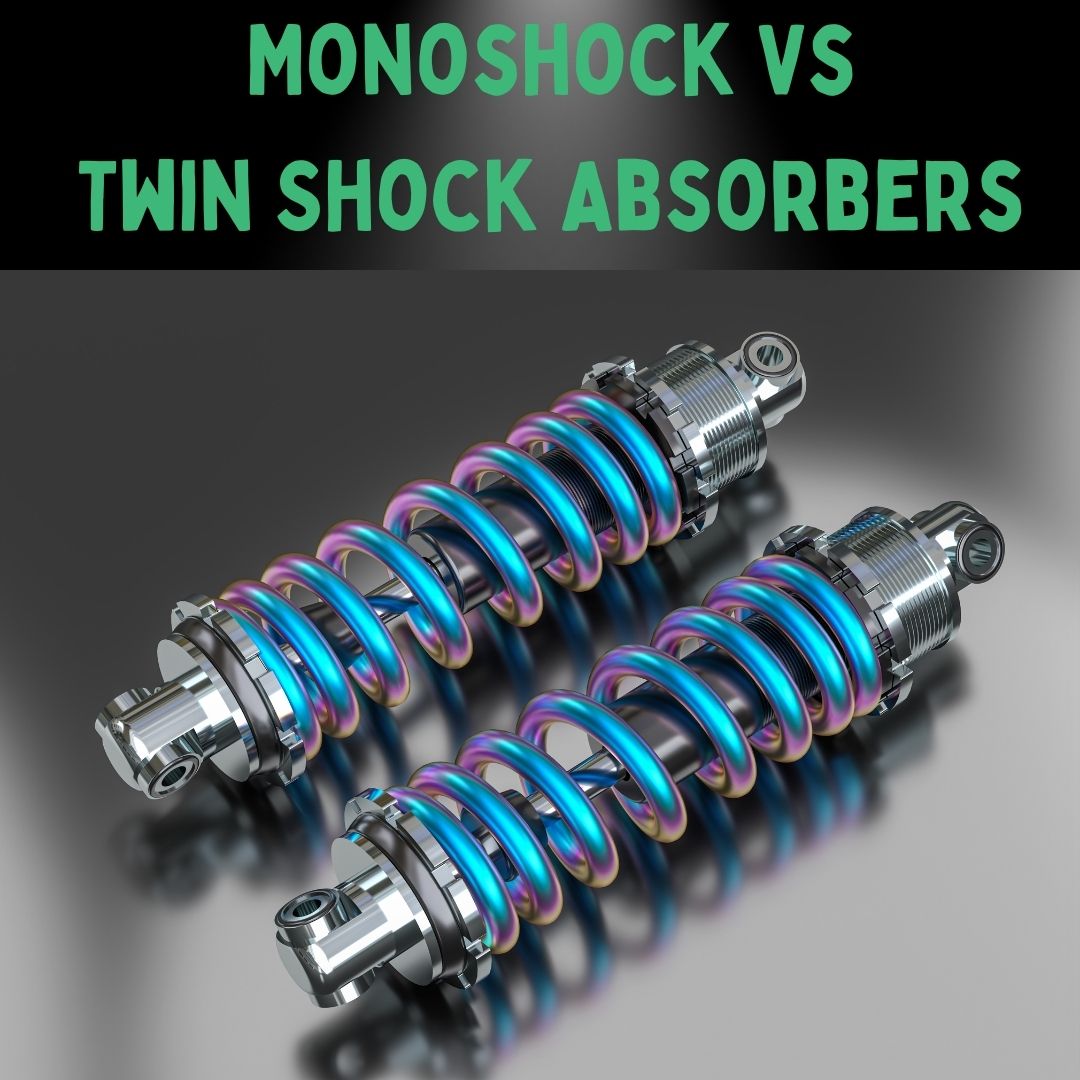
Published: 29 January 2024
Updated: 24 March 2025
Motorcycles are more than transportation—they’re a thrilling experience, and the suspension system plays a key role in that ride.
Two common rear suspension types, monoshock and twin shock absorbers, each offer unique benefits and drawbacks.
Let’s explore their differences to help you choose the right setup for your bike.
Design and Functionality
Monoshock Absorbers
Monoshock absorbers use a single shock unit, typically placed in front of the rear wheel.
They provide precise damping, improving handling and stability, especially on rough terrain.
Twin Shock Absorbers
Twin shock absorbers feature two units, one on each side of the rear wheel.
They’re softly sprung, offering a smoother ride and better load capacity for heavier bikes.
Performance and Handling
Monoshock
Monoshocks excel in stability during cornering and braking due to their precise damping control.
This makes them ideal for aggressive riding and high-performance bikes.
Twin Shock
Twin shocks provide a softer, more comfortable ride but may introduce swingarm twisting, affecting handling during sharp turns.
They’re better suited for casual cruising or classic bikes.
Cost and Application
Cost
Twin shock absorbers are generally less expensive and common in classic or lower-end bikes.
Monoshocks, often found in high-end models, cost more due to their advanced performance.
Application
Twin shocks perform well on poor-quality roads, making them a good fit for cruisers and classic bikes.
Monoshocks are preferred for smoother roads, offering better balance and jerk control.
Maintenance and Lifespan
Monoshock
- Keep clean, especially after wet rides, to prevent corrosion.
- Requires specialist tools for servicing; not a DIY job.
- Change oil every 10-20 hours under hard riding conditions.
Twin Shock
- Clean regularly to maintain performance; oil degrades over time.
- May need more frequent servicing due to dual units.
- Check for wear, oil leaks, cracks, or rust regularly.
Modern Trends
Most modern motorcycles, for both on- and off-road use, now use monoshock absorbers.
Their superior handling, stability, and damping make them the preferred choice for performance-focused bikes.
Conclusion
Choosing between monoshock and twin shock absorbers depends on your riding style and bike type.
Monoshocks offer precision and stability for modern, high-performance rides, while twin shocks provide a softer, more comfortable experience for classic bikes and cruisers.
FAQ’s
What’s the main difference between monoshock and twin shock absorbers?
Monoshocks use a single unit for precise damping and stability; twin shocks use two units for a softer ride and better load capacity.
Which is better for handling, monoshock or twin shock?
Monoshocks generally provide better handling and stability, especially during cornering and braking.
Are twin shock absorbers cheaper than monoshocks?
Yes, twin shocks are typically less expensive and found in classic or lower-end bikes.
What type of shock absorber is best for rough terrain?
Monoshocks are better for rough terrain due to their precise damping and stability.
How often should I service my motorcycle’s shock absorbers?
Under hard riding, change the oil every 10-20 hours and inspect regularly for leaks or wear.
Ready to Ride? 🚀
Loved our 2025 guide on monoshock vs twin shock absorbers?
Explore more at RiiRoo.com or chat live with us!





Share:
What Suspension Do Dirt Bikes Use?
Electric vs. Petrol Go Karts for Kids